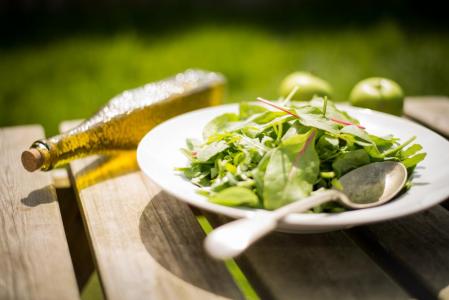Little-known but essential, vitamin K helps blood to clot. Most vitamin K is produced by bacteria in the gut, although there are also a few vitamin K-containing foods.
How much vitamin K do we need?
Who needs more and why?
It is highly recommended that all babies are given a Vitamin K injection at birth. Babies have low levels of this vitamin as they have less bacteria in their gut where Vitamin K would be made and babies do not receive enough Vitamin K from their Mothers. Without the Vitamin K injection babies are at great risk of serious bleeding and developing a rare bleeding disorder.

Which foods contain vitamin K?
Vitamin K is found in green, leafy vegetables (such as spinach, broccoli, brussels sprouts, cabbage, lettuce), soybean and canola oils. Some milk products are fortified with vitamin K. However most vitamin K is produced by bacteria in the gut.
Medications and vitamin K
Warfarin is a blood-thinning medication given to people to reduce the risk of blood clots forming in their body, which is the direct opposite action of Vitamin K which clots blood. People taking warfarin need to keep the amount of Vitamin K from foods and supplements in their diet constant. If the levels of Vitamin K consumed vary significantly then medication levels need to be changed to match this. This needs to be discussed and monitored by a doctor with support from a registered dietitian or nutritionist. Such changes may occur:
- during summer if more salad greens are being eaten
- when certain high vitamin K vegetables are in season, such as Brussels sprouts
- if cooking oil is changed to canola or soya which are both high in Vitamin K
